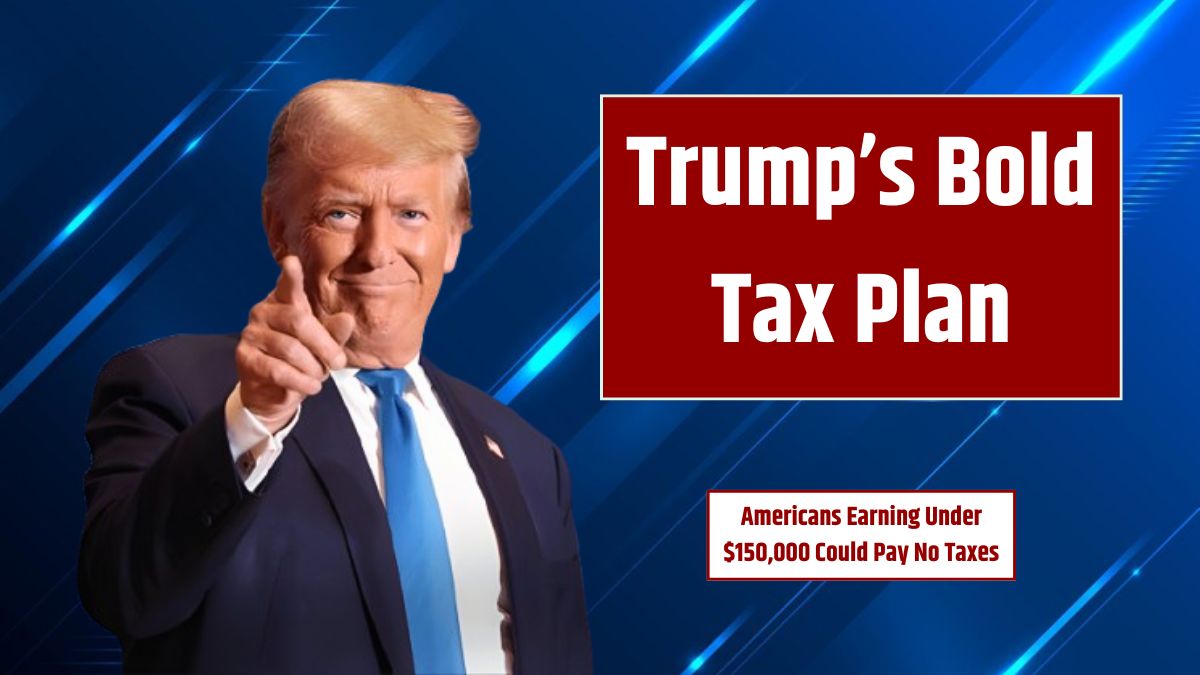The US Secretary of Commerce, Howard Lutnick, recently announced President Donald Trump’s new tax plan, which aims to eliminate income taxes for individuals earning less than $150,000 per year. This ambitious proposal is part of a broader fiscal strategy designed to reduce tax burdens on working Americans while encouraging domestic economic growth.
In an interview with CBS News, Lutnick emphasized Trump’s commitment to tax relief, stating, “I know what Trump’s goal is, which is zero taxes for those who earn less than $150,000 a year. That’s his goal, and that’s what I’m working for.”
Tax Cuts
Trump’s fiscal policy also includes eliminating taxes on tips and overtime while significantly reducing both personal and corporate tax rates. The goal is to put more money in the hands of individuals and businesses, boosting consumer spending and investment.
To compensate for the revenue loss from these tax cuts, Lutnick suggested targeting international tax fraud, which he claims is a major source of lost revenue for the United States. Additionally, Trump has proposed a new visa program that would charge $5 million per visa, potentially generating substantial funds to offset the deficit.
Trump’s comprehensive tax plan, which includes an estimated $4.5 trillion in tax cuts, was approved by the Republican-controlled House of Representatives in February. The proposal now awaits a vote in the Senate, where it is expected to face intense debate.
Public Spending
Alongside tax cuts, Trump aims to reduce public spending and address the national fiscal deficit. However, these efforts have sparked controversy, particularly regarding large-scale layoffs of federal employees across various government agencies.
Lutnick also reaffirmed Trump’s strong stance on tariffs, explaining that the president sees key industries such as steel, aluminum, pharmaceuticals, semiconductors, and automotive manufacturing as essential to US national security and economic stability.
“We need a steel and aluminum industry here in the United States to protect us for national security purposes,” Lutnick stated. “You can’t be at war without producing steel; you can’t allow another country to supply steel if you need it for a war.”
Despite concerns about inflation, Trump believes tariffs will strengthen the US economy rather than drive up prices. His tax strategy aligns with his broader goal of reducing the role of the Internal Revenue Service (IRS) and shifting the tax burden onto “outsiders.”
Economic Concerns
While Trump’s tax plan has been welcomed by some, it has also raised doubts among business leaders and economists.
Billionaire investor Mark Cuban recently criticized the administration’s approach, questioning whether tariffs and aggressive tax cuts would truly benefit the US economy. Cuban argued that America’s strength lies in its service sector and technological dominance rather than a manufacturing-based economic model.
Additionally, JPMorgan chief economist Bruce Kasman issued a warning about the potential risks of Trump’s economic policies. He estimated a 40% chance that the US could enter a recession, citing stock market volatility and trade concerns as key factors.
As Trump’s tax proposal moves forward, its impact remains uncertain. While many Americans may welcome the idea of paying little to no taxes, the long-term economic effects, particularly regarding government revenue and public services, will be closely watched.
FAQs
Who will benefit from Trump’s tax plan?
Individuals earning under $150,000 per year may pay no income tax.
How will the government make up for lost tax revenue?
By reducing tax fraud and introducing a $5 million visa program.
What industries does Trump want to protect?
Steel, aluminum, pharmaceuticals, semiconductors, and automotive.
Are tariffs expected to increase inflation?
Trump believes tariffs will not cause inflation, despite concerns.
What are economists saying about the plan?
Some experts warn it could lead to a recession and market instability.






